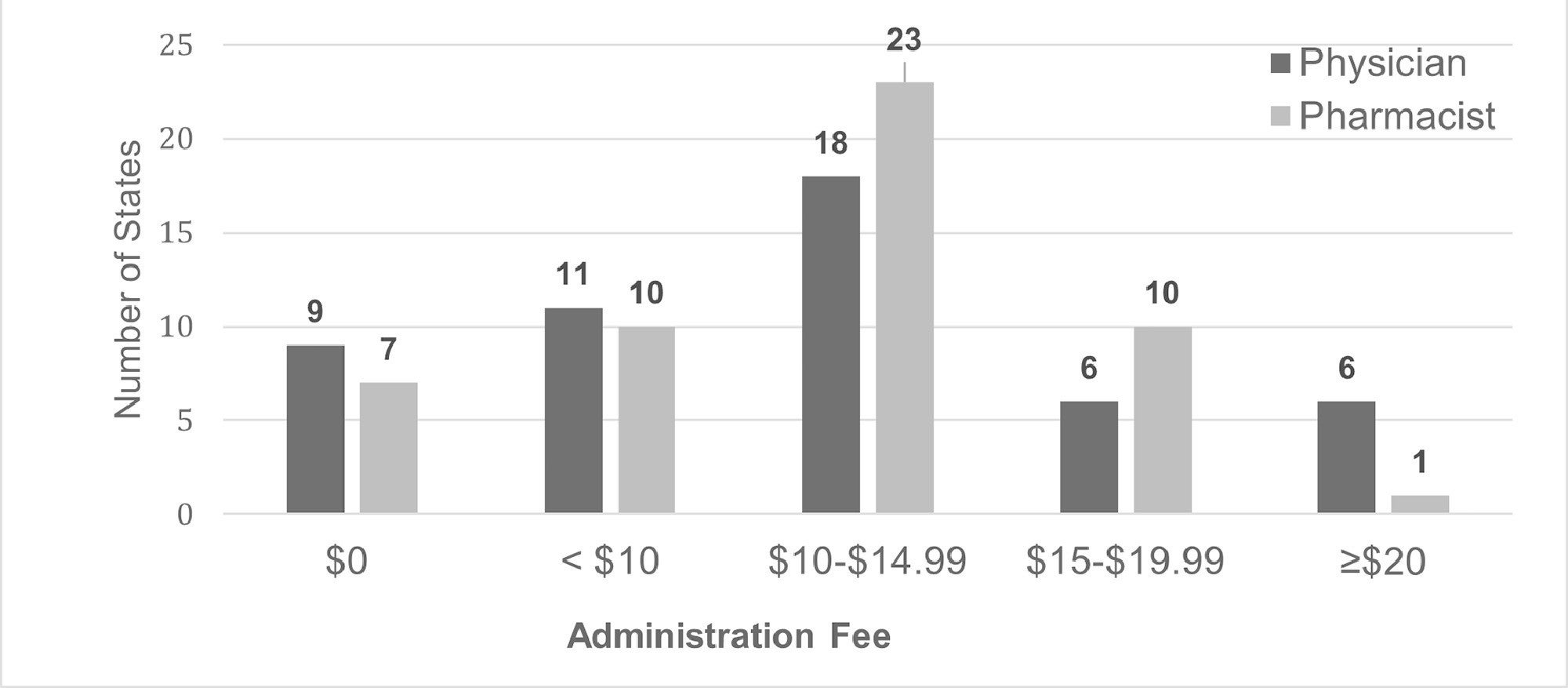Reimbursing Physicians and Pharmacists for Adult Vaccines: Excerpt from a Recent Study
This paper was written in collaboration with Amanda Eiden, Anthony DiFranzo, Matthew Itzkowitz, and Alexandra Bhatti.
This is an excerpt from a recently published study in AJMP Focus, “State Medicaid Coverage and Reimbursement of Adult Vaccines Administered by Physicians and Pharmacists as of 2022”, which was supported by Merck. Click here to read the full article.
Overview
- Medicaid programs are now required to provide first dollar coverage for ACIP recommended vaccines
- Coverage and reimbursement gaps persist that can hinder optimal and equitable vaccine uptake
- FFS reimbursement has historically been lower compared to Medicare and private insurance
- Pharmacies are critical complimentary access points for adult vaccination
- Twenty states restricted Medicaid coverage for certain vaccines administered by pharmacists.
Physician Reimbursement. Of the 50 states for which FFS data are available (all but Puerto Rico and Tennessee), 41 (82%) pay physicians a separate administration fee for administering a vaccine to an adult age 21+ during an office visit. These fees range from a low of $3.72 (South Carolina) to a high of $25.62 (Arizona). The median administration fee among these states is $13.27, but drops to $11.68 if we include the 9 (18%) that do not pay an administration fee (i.e., a fee of $0).
Pharmacist Reimbursement. Among the 48 states that cover pharmacist-administered vaccines, 45 (90%) pay a fee for administering a vaccine to an adult age 21+, ranging from a low of $4.10 (Arizona) to a high of $21.32 (Montana). The median administration fee among these states is $12.95, but drops to $10.67 if we include the 5 (10%) that do not pay an administration fee for pharmacist vaccinations. In 34 states (71%), the administration fee for pharmacists is equal to or greater than the fee for physicians, including 8 states with a difference of $5 or more.
Click here to read the full article.

